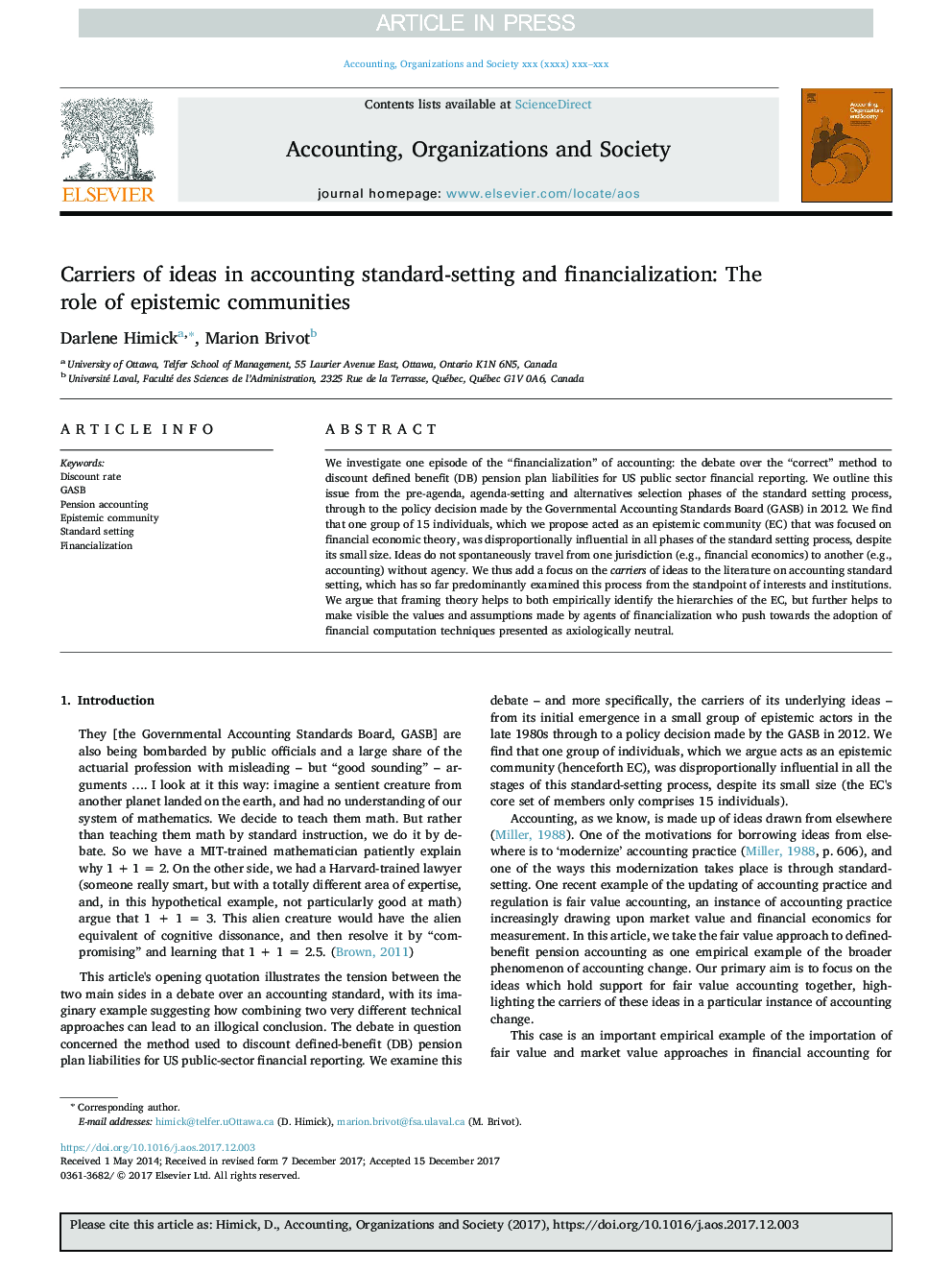| Article ID | Journal | Published Year | Pages | File Type |
|---|---|---|---|---|
| 7239473 | Accounting, Organizations and Society | 2018 | 16 Pages |
Abstract
We investigate one episode of the “financialization” of accounting: the debate over the “correct” method to discount defined benefit (DB) pension plan liabilities for US public sector financial reporting. We outline this issue from the pre-agenda, agenda-setting and alternatives selection phases of the standard setting process, through to the policy decision made by the Governmental Accounting Standards Board (GASB) in 2012. We find that one group of 15 individuals, which we propose acted as an epistemic community (EC) that was focused on financial economic theory, was disproportionally influential in all phases of the standard setting process, despite its small size. Ideas do not spontaneously travel from one jurisdiction (e.g., financial economics) to another (e.g., accounting) without agency. We thus add a focus on the carriers of ideas to the literature on accounting standard setting, which has so far predominantly examined this process from the standpoint of interests and institutions. We argue that framing theory helps to both empirically identify the hierarchies of the EC, but further helps to make visible the values and assumptions made by agents of financialization who push towards the adoption of financial computation techniques presented as axiologically neutral.
Related Topics
Social Sciences and Humanities
Business, Management and Accounting
Accounting
Authors
Darlene Himick, Marion Brivot,
